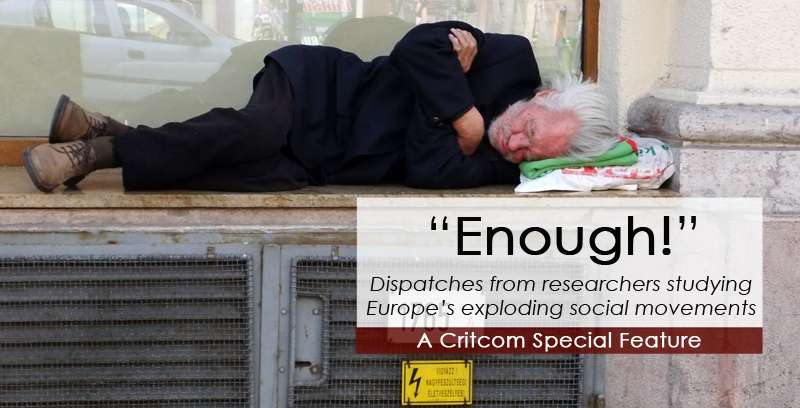Struggles in and over Public Space: Hungarian Heritage as a Homeless Free Zone

On November 2013, members of the organization The City Is for All (A Város Mindenkié, henceforth AVM) were forcibly removed from the Budapest General Assembly, after forming a singing, poem-reciting human chain in protest of the extension of criminalization of homeless people ‘to a major part of the city’ (AVM 2013). This came less than a month after AVM addressed a letter to the United Nations Educational, Scientific and Cultural Organization (UNESCO) in an attempt to stop the use of heritage in this process of criminalization. Budapest, including the Banks of the Danube, the Buda Castle Quarter and Andrássy Avenue, possesses the status of ‘Outstanding Universal Value’ on UNESCO’s list of world heritage sites, and in October 2013, the Hungarian government declared the area of all heritage sites a homeless-free zone.
As protest events continue to unfold on the streets of Ukraine and Bosnia, AVM’s fight against criminalization of homeless people in Hungary and the forms it takes asks us to think more broadly about struggles in and around ‘public’ and urban space, whether we have in mind the January 2013 ‘anti-protest laws’ passed in Ukraine that limited free speech and assembly in response to mass manifestations on the ‘Maidan’, or the tender and fraught alliance among homeless and occupiers in Occupy Wall Street’s home base, Zuccotti Park (Ehrenreich 2011, The Week 2011). The study of social movements requires more than attention to moments of protest. We must also take into account the way in which governance shapes the manner that struggle is enacted and conceived. The concept of ‘heritage’ is becoming an important player in the politics of urban space and related processes of dispossession, and its governance is shaping urban struggle. What are the stakes of labeling urban space heritage? What is at stake in how ‘public’ space will be conceptualized, and who will have access to its use? In the context of neo-liberal heritage governance, what strategies have emerged, and what are their limits? Keeping the question of public space in tension with the idea of the commons will allow us a critical vantage point into this space of struggle.

more: CouncilForEuropeanStudies

 MMA countdown – Free Artists welcomes the resigned MMA-members!
MMA countdown – Free Artists welcomes the resigned MMA-members! TRANSZPARENCIÁT!
TRANSZPARENCIÁT!